- Home
- Hanna Hamilton
The Legend of the Betrayed Duchess_A Historical Regency Romance Novel
The Legend of the Betrayed Duchess_A Historical Regency Romance Novel Read online
The Legend of the Betrayed Duchess
A Historical Regency Romance Novel
Hanna Hamilton
Edited by
Maggie Berry
Contents
A Thank You Gift
About the Book
Chapter 1
Chapter 2
Chapter 3
Chapter 4
Chapter 5
Chapter 6
Chapter 7
Chapter 8
Chapter 9
Chapter 10
Chapter 11
Chapter 12
Chapter 13
Chapter 14
Chapter 15
Chapter 16
Chapter 17
Chapter 18
Chapter 19
Chapter 20
Chapter 21
Chapter 22
Chapter 23
Chapter 24
Chapter 25
Chapter 26
Chapter 27
Chapter 28
Chapter 29
Chapter 30
Chapter 31
Chapter 32
Chapter 33
Chapter 34
Chapter 35
Chapter 36
Epilogue
A Dashing Duke for Emily
Chapter 1
Chapter 2
Chapter 3
Chapter 4
Chapter 5
Also by Hanna Hamilton
About the Author
A Thank You Gift
Thanks a lot for purchasing my book. It really means a lot to me, because this is the best way to show me your love.
As a Thank You gift I have written a full length novel for you called A True Lady. It’s only available to people who have downloaded one of my books and you can get your free copy by tapping this link here.
Once more, thanks a lot for your love and support.
Hanna Hamilton
About the Book
After losing her whole family in a fire accident, Lucy Brighton is taken as a ward in the Grayson estate, home of the Duke of Sutherland. Her stay with her new family quickly turns into a nightmare, with writing becoming her only escape and George, the Duke’s son, being her only friend.
Growing up developing a deep love for the arts instead of the family business, as well as a secret infatuation for Lucy, George Grayson suffers his parent’s continuous disapproval.
Along with the sudden arrival of a mysterious man, claiming to be Lucy’s lost brother, a series of unexpected events start to take place, that bring chaos into the Grayson home, having everyone’s fates hanging by a thread.
Chapter 1
The cottage was nestled in a grove of trees not far from a stream used for personal washing, watering the cow, irrigating the vegetable garden, and beating clothes on the rocks on wash day. But now the cottage was silent on this sultry summer’s night—its inhabitants asleep—under the starry night sky. A light, but not cooling, breeze was picking up and fluttering through the willows along the stream and causing the treetops to begin a soulful dance.
It was very early in the morning, and the crickets and frogs seemed to be taking a break when the first tuft of smoke snaked its way skyward from the thatch of the roof over the back door that led to the stable. But soon a second plume appeared, followed by a third—not only at the back of the house but now toward the front.
A burst of hot wind came sweeping along the valley floor and crashed like a wave over the house as the whole roof erupted into a fireball of flame. The house had been constructed of half-timber and mud stucco, and within the blink of an eye, every piece of wood in the house was ignited and set ablaze—fanned by the dry, devil wind. At first, there seemed to be no movement. Then the front door burst open, but that created a backdraft, and the fire intensified, with flames and smoke being sucked in from the top of the house, through the front door, and into the interior.
No one heard the screams. There were no houses close enough, and the nearest road was along a cart trail through a spinney and down a hill. The Manor House was a good mile away out of sight of the cottage and too far away to be of any help even if someone had seen the fire.
By dawn, all that was left was the kitchen garden covered in ash, the stable and a pile of smoldering rubble. By then, the wind had died down, and as the sun began to rise, it was clear it was going to be another blisteringly hot day.
Ben Goodbody, the cartwright, who lived around the bend and downstream from the cottage, had taken his cow to the water’s edge. While she took her morning drink, Ben lifted his head to look at the dawn sky.
“Gonna be another brutal one,” he said to his Maggie, who only swished her tail as she drank. She appeared to have no opinion about the weather.
Ben noticed there was a haze, low along the bank of willows across the stream. He recognized the unmistakable smell of smoke.
“Who be lighting a fire for breakfast in this heat?” he asked himself. “Those crazy Brightons,” he said, even though they were friendly neighbors. He had more than once sought their help for an excavation or to corral them to hold up the axle of his wagon as he slipped on a new wheel. Without the Brighton boys, he could not manage by himself with a house full of daughters and small boys.
He was about to turn and lead Maggie back to the barn when he heard what sounded like the sobbing of a child.
“Huh,” he grunted as he tied his cow to a tree and started walking along the bank of the stream to find where the cry was coming from.
Ben was a sturdy, beefy man in his forties and as he followed the sound, he splashed across the stream to the other bank until he came to a clump of bushes.
“Hello,” he called out. “Hello.”
There was no answer, but the sobbing had now become a whimper, and he ascertained that it was coming from the bushes. He separated the branches between two bushes and looked down to see a young girl child curled up into a ball and seemed to be in a state of shock.
“Eh, what be this?” he called out, reaching down and picking up the girl.
The child flung her arms around his neck and held on for dear life. Ben looked around, smelling the smoke even stronger now. He recognized the girl as the six-year-old daughter of the Brightons and figured he should take her home to her family. Perhaps she had wandered out of the house during the night and become disoriented.
He walked toward the Brighton’s house with the child still whimpering on his shoulder.
“Eh, now, lass. Ye be all right. Get ye home to your mama, and all be well.”
But as he came around the bend of the stream, he came across the horror. The Brighton house had burned to the ground. There were no living souls around anywhere in sight.
He put the child down, even though she tried not to let go of his neck. He ran to the house to see if he might discover any remains, but the coals were still too hot to even get close to the collapsed house.
“Oh, baby, baby…” he moaned, pressing his hands against his head. He went back and picked up the girl. “You got no mommy, no daddy, no brothers or sisters. Ye be an orphan now, lass. May God be w’ye.”
The Grayson estate took up a large portion of north central Dorset. The Grayson family was descended from a long line reaching back to King Richard the Second. Everard Grayson had thwarted some horrific plot to disgrace His Highness by someone intent on revealing one of his many personal indiscretions. Out of gratitude—and being partially drunk at the time—the King had granted Everard lands in faraway Dorset and bestowed upon him the hereditary title of The Duke
of Sutherland—yes, out of gratitude but also to keep him out of the London court so the king might not be reminded of his near, personal humiliation. The Grayson coat of arms thus bore the description Out of Sight – Out of Mind in Latin.
Matthew, the current Duke of Sutherland, considered himself a country gentleman in the truest British sense in this year of 1828. He took great pride in his extensive lands and holdings. His family had thrived over the centuries, expanding the original estate grant to its present size—a vast area of land supporting and being supported by many tenant farmers.
Every morning before breakfast, His Grace would march outside and stand at the front of the Manor and survey his estate stretched out before him, as the Manor was high on a hill—the estate falling away below and spreading across a large valley, surrounded on either side by gently rolling hills.
The Manor house was elegant but not showy. The Graysons generally shied away from ostentation, so the house had been constructed of sturdy local stone with large windows looking out across the valley. The back of the house looked over a modest formal garden bordering a tidy grove of trees.
The Duke stood with his arms akimbo and legs spread apart looking rather like the monarch, Henry the Eighth. He was a sturdy man with thinning hair, a rosy face, and a jolly good laugh.
“Another hot one, Stevens,” he said to his butler, who always accompanied him outside with an umbrella in case the weather turned inclement if he decided to stroll around the property before breakfast—as he often did.
“Yes, Your Grace.”
As the sun was shining directly in his eyes, Matthew put his hand up to shade from the glare.
“What is that?” he asked pointing to a man walking up the hill toward the Manor.
Stevens strained to see. “I believe it is a gentleman with what appears to be a child, Your Grace.”
“And I believe you are correct. Exactly what I was thinking, Stevens.”
“Would you like me to see to it?”
“If you would be so kind. We cannot have just anyone roaming around the estate as though we were a public thoroughfare.
“Quite right, Your Grace.” And Stevens headed out toward the approaching man.
Matthew could see his butler had approached the man and they were conferring.
“Huh,” he exclaimed, as Stevens started returning, accompanied by the man.
The Duchess of Sutherland had been born Judith Elkins, a renowned local beauty, who snatched up the young Matthew Grayson, heir to the Grayson estate, as soon as it was known his family was searching for the future Duchess of Sutherland.
It could be said that Miss Judith was the perfect match for the young Matthew. She came from a grand local merchant family—her mother was deceased, and she had no siblings. She would inherit the entirety of her father’s estate. And she was comely and socially graceful, although it was rumored she could be a little light headed when it came to serious discussions. But what use was an intelligent wife, Matthew’s mother often stated—intelligence would only hamper what might otherwise be a very calm and tranquil marriage.
Judith stood at her bedroom window, on the second floor of the Manor, looking down at her husband as Stevens and a gentleman with a child approached. The harsh morning light was not kind to a woman who had just turned forty. And she appeared to have a rather pinched-looking face from her habit of scowling at anything that upset her even moderately—which was often. But she still had her lovely blonde hair, she maintained her svelte figure, and she was still considered as handsome if no longer the fresh beauty of her early years.
She was holding a cup of tea—always her first each morning—delivered when she was awakened by her personal maid, Flossy. Judith parted the drapery a little further and peered down at the commotion going on below her. She was intrigued as to what this Kerfuffle might be about, but she was not intrigued enough to leave her room until she was properly dressed. And that would take at least another hour.
“Flossy, my dear, might you pour me another cup of tea and then go downstairs and see what is going on? There seems to be some agitation, and I cannot for the life of me tell what it is all about.”
“Yes, your Grace,” Flossy said topping up the tea from the teapot.
“Uh, the tea is cold,” Judith said with a grimace.
“I will fetch a new pot when I go down,” Flossy said as she scooted out of the bedroom.
Judith sighed and examined a small tear in her dressing gown. “Bother,” she said and headed to her dressing table where the morning’s hair and facial reconstruction would begin once Flossy returned.
Ben Goodbody was not one of The Duke’s tenants. He was from a long line of cartwrights that maintained a business in the village of Chiseldon, but he was known to Matthew by name and by trade.
“But what am I to do with this child,” His Grace asked with some astonishment.
“Know not, Your Grace. But I can do naught. I got three daughters and two young lads. Cannot take another,” Ben said, handing the distraught child over to Stephens, who grimaced and knew not what to do with the creature.
Matthew was flustered. “But my good man how am I to be held responsible?”
“The Brightons be your tenants, sir. And as far as I can tell, there be no survivors. All burnt down to the ground and not a flicker of life nowhere to be found.”
Matthew sighed, and turned to Stephens. “Take the child inside and let Mrs. Wilkes have a look at her. She probably needs a wash-up and a feed.”
“Very well,” Stephens said, as she tried to take the child from Goodbody. But she clung to the man’s neck and resisted letting go, sending up a wail of grief until she was forcibly pulled away. Finally, Stephens had a good hold on the girl and started up the stairs to the entryway.
Matthew reached into his waistcoat pocket and pulled out a gold sovereign. “Thank you, Goodbody. I shall send some of my fellows over shortly to take a look at what is left of the house. Off with you now.”
Ben touched his cap, turned and left, walking back down the hill toward his own house.
Feeling his serene morning had been fractured Matthew ascended the Manor steps and went back inside.
He strode directly to the kitchen where he found Mrs. Mead, the cook, fussing over the child with several of the kitchen maids. Mrs. Wilkes, who was the nanny and governess, was undressing the child just before one of the maids sponged the young child down.
The poor child kept calling out for her mommy.
“Hush now, child, your family is no more. You will be cared for here for now.”
“Humph,” Matthew sounded out as he cleared his throat to announce his appearance.
“Oh, your Grace, what a tragedy,” Mrs. Mead said, tucking a wayward strand of hair under her kitchen cap. “What is to be done with the lass?”
“Damned if I know. Is her Grace down yet?” Then he waved his hand in the air. “No, of course, she is not. Way too early for her to appear.” He then addressed Mrs. Wilkes. “What can be done here? Damn situation.”
“I shall take her to the nursery, your Grace. Poor child needs a bit of gruel and a nice lie-down. I shall care for her for the time being if it suits.”
Matthew waved his hand again. “Yes. Yes. But I need to speak to her Grace before anything final can be decided.”
“I understand. And I shall inform the girls of this development. I know they will take a keen interest in the child.”
“Humph,” Matthew declared again and, waving his hand, abruptly left the kitchen.
After the child was cleaned up and a tray with warm milk and gruel prepared, Nanny Wilkes took the girl’s hand and asked, “What is your name, child?”
“Lucy Brighton, Miss.”
Nanny frowned. “You may call me Nanny Wilkes. And be sure you mind your manners, pray each morning and evening, and address everyone according to their rank.”
“Yes, Miss Nanny Wilkes.”
“Just Nanny Wilkes will do,” she said taking hold of t
he girl’s hand and leading her out of the kitchen followed by a kitchen maid with the tray.
Chapter 2
The Duke and Duchess of Sutherland had three older daughters and one younger son. The daughters were fairly close together in age as his Grace was desperate to have a son and heir. Then her Grace insisted three children were quite enough and instituted a time out—but accidents do happen and their son, George, came along two years after the last daughter.

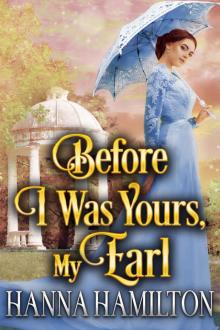 Before I Was Yours, My Earl: A Historical Regency Romance Novel
Before I Was Yours, My Earl: A Historical Regency Romance Novel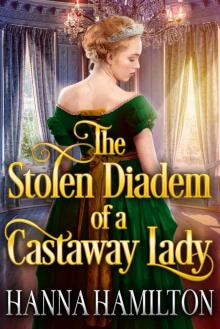 The Stolen Diadem of a Castaway Lady: A Historical Regency Romance Novel
The Stolen Diadem of a Castaway Lady: A Historical Regency Romance Novel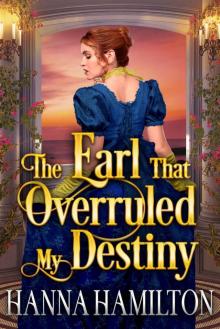 The Earl That Overruled My Destiny
The Earl That Overruled My Destiny Annabelle Enchants the Rejected Earl: A Historical Regency Romance Novel
Annabelle Enchants the Rejected Earl: A Historical Regency Romance Novel Diana Adores the Puzzled Duke_A Historical Regency Romance Novel
Diana Adores the Puzzled Duke_A Historical Regency Romance Novel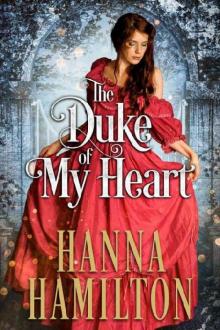 The Duke of My Heart (Regency Romance)
The Duke of My Heart (Regency Romance)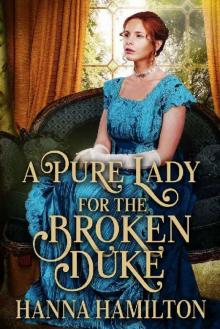 A Pure Lady for the Broken Duke
A Pure Lady for the Broken Duke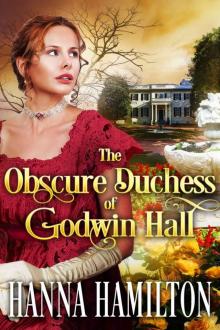 The Obscure Duchess of Godwin Hall_A Historical Regency Romance Novel
The Obscure Duchess of Godwin Hall_A Historical Regency Romance Novel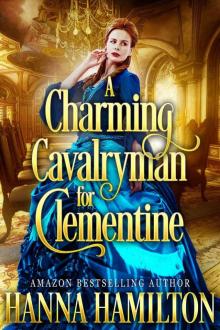 A Charming Cavalryman for Clementine_A Historical Romance Novel Based on True Events
A Charming Cavalryman for Clementine_A Historical Romance Novel Based on True Events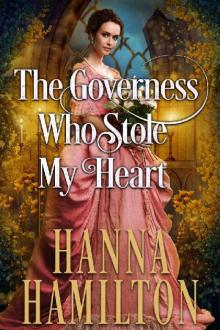 The Governess Who Stole My Heart: A Historical Regency Romance Novel
The Governess Who Stole My Heart: A Historical Regency Romance Novel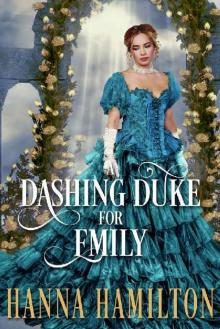 A Dashing Duke for Emily_A Historical Regency Romance Novel
A Dashing Duke for Emily_A Historical Regency Romance Novel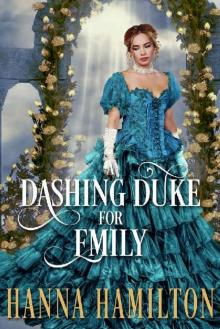 A Dashing Duke for Emily
A Dashing Duke for Emily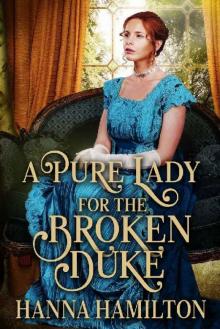 A Pure Lady for the Broken Duke_A Historical Regency Romance Novel
A Pure Lady for the Broken Duke_A Historical Regency Romance Novel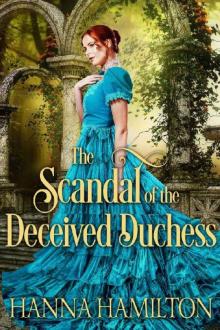 The Scandal of the Deceived Duchess: A Historical Regency Romance Novel
The Scandal of the Deceived Duchess: A Historical Regency Romance Novel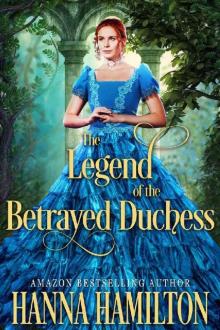 The Legend of the Betrayed Duchess_A Historical Regency Romance Novel
The Legend of the Betrayed Duchess_A Historical Regency Romance Novel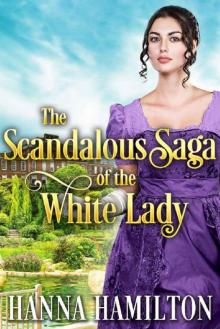 The Scandalous Saga of the White Lady: A Historical Regency Romance Novel
The Scandalous Saga of the White Lady: A Historical Regency Romance Novel